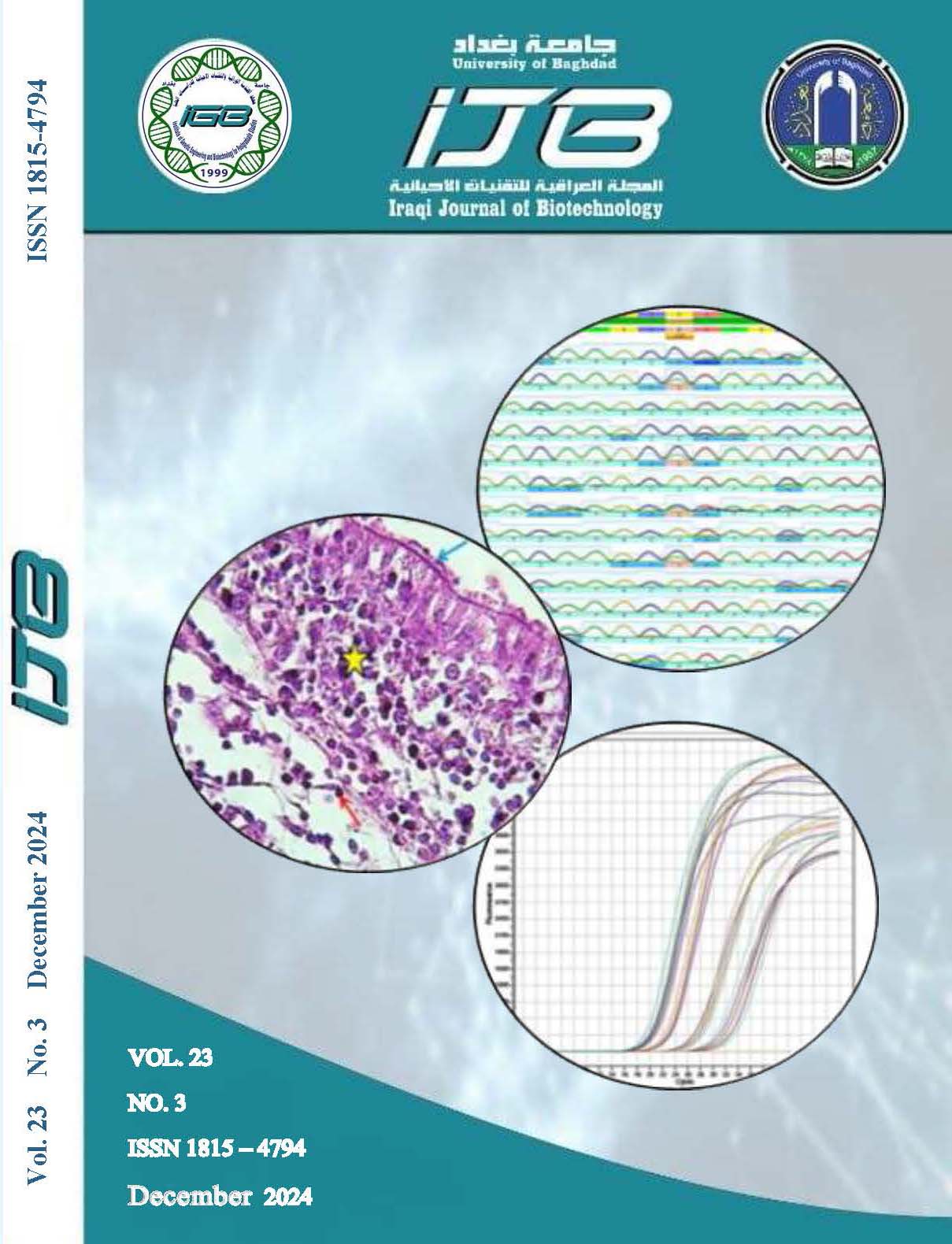Incidence of Virulence Genes (Phzm, phzs) and Antibiotic Resistance Presence in Pseudomonas aeruginosa Strains Isolated from Hospitalized Patients in Baghdad City
Abstract
Pseudomonas aeruginosa, a prominent culprit of hospital-acquired infections, is progressively linked to epidemics and poses a global challenge across diverse medical facilities. The aim of the study to emergence of multidrug-resistant (MDR) P. aeruginosa has assumed paramount clinical importance, from October 2022 to January 2023, 150 specimens were collected from patients referring to the medical City hospitals in Baghdad and a private laboratory in Baghdad. The strains were isolated from clinical specimens: 46 burn swabs, 43 urine sample, 8 Blood specimens, 39 sputum sample, 12 wound swabs and 2 ear swabs of patients, these samples were taken from patients of different ages, men, women and children, all samples underwent bacteriological and biochemical examinations for diagnosis. Out of the total 150 specimens, 38 (25.33%) were identified as Pseudomonas aeruginosa, while the remaining 112 (74.67%) exhibited different bacterial strains. The P. aeruginosa isolates were verified using the VITEK2 system and demonstrated positive outcomes for oxidase, catalase, and hemolysin production. The pyocyanin test results were mixed, ranging from negative to positive, and confirm diagnosis tests the ability to grow at 42°C conducted for further confirmation (heat tolerance). It was concluded That PCR analysis was performed on 38 isolates, targeting the 16SrRNA (housekeeping gene) as well as the virulence genes Phzm, Phzs. The findings revealed that all samples tested positive for the 16SrRNA gene. And also, 36 (94.74%) were positive for Phzm, 31 (81.58%) for Phzs.


